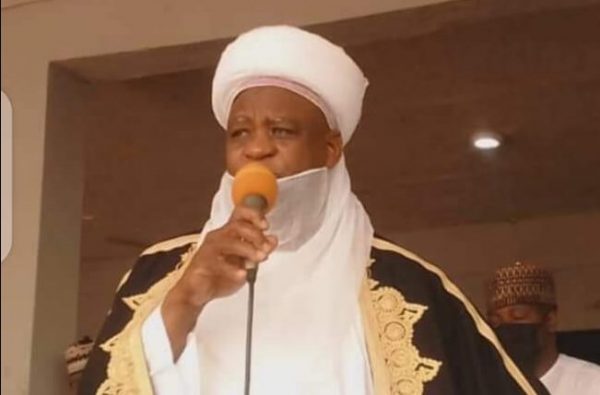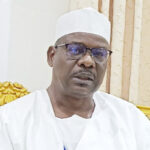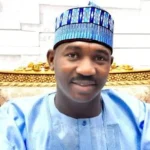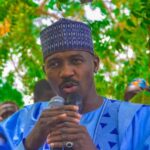The Sultan of Sokoto, Alh. Muhammad Sa’ad Abubakar III, has said the North has failed to move forward in education because of non-implementation of past recommendations.
He spoke on Tuesday in Abuja at the conference organised by the Sir Ahmadu Bello Memorial Foundation with the theme, “Education in Northern Nigeria: Status, Challenges, and the Way Forward”.
Sultan, who spoke as Chairman of the Northern Traditional Rulers Council, representing 20 first-class traditional rulers, stressed the need for stakeholders in the North to show more seriousness in the area of implementation of recommendations made to accelerate the development of education.
He said the region would continue to organize conferences to talk about the challenges of education every year if the recommendations of previous panels were not implemented.
- Gunshots near Abaji technical college as vigilantes foil kidnap attempt
- Atiku: Why My SSCE Certificate has a different name
He commended a former Minister of Education, Professor Ruqayyatu Ahmed Rufai, and her team for carrying out another research whose recommendations he tasked the stakeholders to constitute a committee for its implementation to achieve the desired goals.
He said, “That is our problem, implementation. If we don’t implement, we come back next year for another conference and still talk about the same thing. So, let’s be more serious now because if you have identified a problem, you have half of the solution. Now, let’s look for the other half of the solution so that we can move forward.”
Professor Ruqayyatu made a presentation on the outcomes of the research work done on the current state of education in the North.
She said the report identified the inability to mobilise school-age children, poor release of funds, inadequate political will, and non-availability of offices for guidance and counseling services as some of the challenges to education in the North.
As part of solutions to the challenges, she listed the recommendations of the research work to include the need to ensure that additional schools were built in the North, school feeding programme be expanded, provision of adequate non-teaching staff, timely payment of salaries, provision of quality and qualitative inspectors and competition in the recruitment of teachers among others.
Chairman of the Board of Trustees of the Sir Ahmadu Bello Memorial Foundation, Babangida Aliyu, said 50% of teachers in North are not qualified.
He stressed the importance of the Nigerian Certificate in Education (NCE) as a minimum requirement for teachers, adding that no northern state in Nigeria has 50 percent qualified teachers, as the minimum qualification required is NCE.
On his part, the chairman of the organising committee and Secretary of the Board of Trustees of the foundation who is a former Kano State governor, Ibrahim Shekarau, said the North despite its rich cultural heritage, historical significance, and abundance of human resources, lagged behind in terms of educational development compared to other regions in the country.
Shekarau emphasised the need for urgent action, stating, “These findings are not meant to discourage us, but rather to serve as a wake-up call for urgent action.
“Education is the bedrock of any prosperous society, and it is our collective responsibility to address these challenges head-on.”
On his part, the Minister of Information, Mohammed Idris, emphasized the pivotal role of inspiring and purposeful leadership in driving societal change and development.
The Minister of Budget and Economic Planning, Atiku Bagudu, said part of the reasons behind the decision of President Bola Ahmed Tinubu and the federal government to remove subsidy and unify exchange rates was to raise funds for investments in critical sectors such as education, saying that it might have become difficult to pay salaries if such actions were not taken.
He suggested that the role of the National Economic Council (NEC) should be extended to include mobilisations of revenue to achieve set goals.
Prof. Ishaq Oloyede, the Registrar of the Joint Admissions and Matriculation Board (JAMB). While speaking, said the figure of candidates seeking admission grossly underrepresented northern Nigeria.
He hinted that the quota of students of northern extraction was being filled by people not from there.
Oloyede said he discovered this when he queried a Vice Chancellor from South East on the reason admission was not given to applicants from Cross River and the North.
He said the VC asked him to look at the names of the applicants if they truly originated from the North.
Oloyede advised the people of the North to stay in other parts of Nigeria for education and employment opportunities.
He observed that there was a high tendency for people from Northern Nigeria to resign and go back to their state of origin for jobs.
The conference was attended by Dr Hakeem Baba Ahmed, Special Adviser (SAD) on Political Matters, who represented Vice President Kashim Shettima.
Other dignitaries at the event were the Etsu Nupe, His Royal Highness, Alhaji Yahaya Abubakar CFR; the Emir of Zazzau, Alhaji Ahmed Nuhu Bamalli CFR; the Minister of Education, Professor Tahir Mamman; and the Acting Executive Secretary, National Universities Commission (NUC), Mr Chris Jibreel Maiyaki among others.

 Join Daily Trust WhatsApp Community For Quick Access To News and Happenings Around You.
Join Daily Trust WhatsApp Community For Quick Access To News and Happenings Around You.


